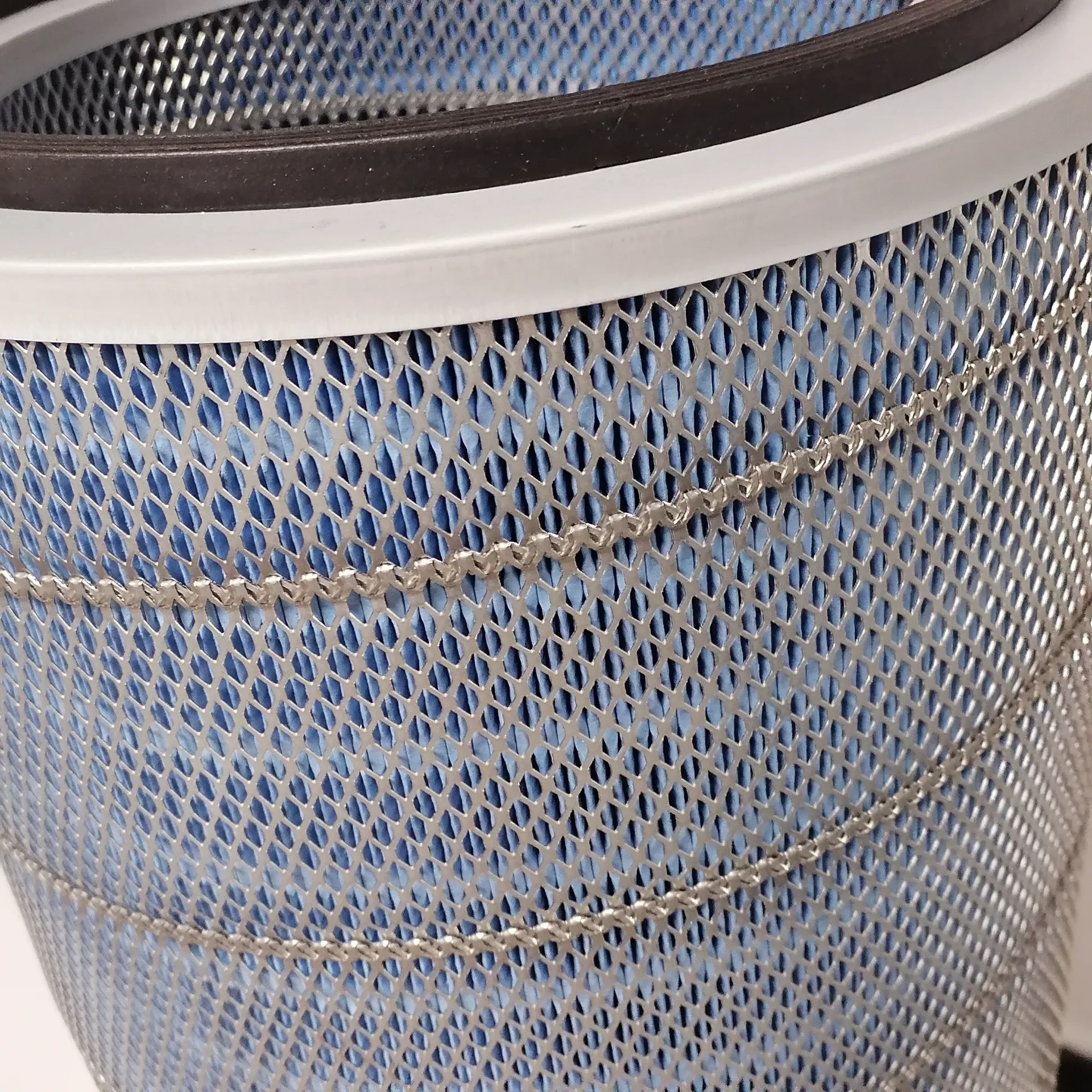 Tel:
+8615930870079
Tel:
+8615930870079
Dec . 01, 2024 11:42 Back to list
fine cartridge filter for dust extractor
Fine Cartridge Filters for Dust Extractors A Comprehensive Overview
In industrial settings, dust extractors play a crucial role in maintaining a safe and healthy work environment. Among the various components of a dust extraction system, fine cartridge filters are essential for effectively removing harmful particulates from the air. This article will explore the importance of fine cartridge filters, their design, applications, and key considerations for selecting the right filter for your dust extraction needs.
What Are Fine Cartridge Filters?
Fine cartridge filters are specialized filtration devices designed to capture fine dust particles, typically ranging from 0.5 to 5 microns in size. These filters consist of a cylindrical shape, which maximizes the surface area available for capturing particles while minimizing resistance to airflow. Made from high-quality materials such as polyester or PTFE (polytetrafluoroethylene), fine cartridge filters are engineered to provide superior filtration efficiency and durability.
Importance of Fine Cartridge Filters
The primary purpose of fine cartridge filters is to ensure that the air released back into the workplace is clean and free of harmful dust particles. In industries such as woodworking, metalworking, and pharmaceuticals, the inhalation of fine dust can lead to serious health issues, including respiratory problems and long-term diseases such as silicosis or asthma. By using fine cartridge filters, companies can significantly reduce the risks associated with airborne contaminants.
Moreover, effective dust extraction not only protects the health of workers but also enhances productivity. A cleaner work environment leads to fewer equipment malfunctions caused by dust buildup, reduced maintenance costs, and longer equipment lifespan.
Applications of Fine Cartridge Filters
Fine cartridge filters are versatile and can be used in various applications across multiple industries. Common applications include
1. Woodworking To capture wood dust generated during cutting, sanding, or machining processes. 2. Metalworking To filter fine metal shavings and chips produced during milling, grinding, or welding operations. 3. Pharmaceuticals To ensure the cleanliness of the air in environments where fine powders and chemicals are handled. 4. Food Processing To remove dust from the air in facilities that process grains, spices, or powdered ingredients.
fine cartridge filter for dust extractor

These filters can be used in standalone dust extractors or as part of centralized dust collection systems, adapting to the specific needs of each operation
.Key Considerations for Selecting Fine Cartridge Filters
When selecting fine cartridge filters for dust extractors, several factors should be taken into account
1. Filtration Efficiency Ensure that the filter meets the required efficiency standards for capturing the specific size of particles produced in your application. High-efficiency filters are often rated in terms of MERV (Minimum Efficiency Reporting Value) or HEPA (High-Efficiency Particulate Air).
2. Airflow Requirements Consider the airflow needs of your dust extraction system. The filter should provide effective dust capture without significantly impeding airflow, which can lead to reduced system performance.
3. Filter Material Choose the right material based on the type of dust and environmental conditions. For instance, PTFE filters offer excellent chemical resistance and are suitable for more aggressive applications.
4. Maintenance and Replacement Evaluate the maintenance requirements, including how often the filters will need to be cleaned or replaced. Some filters are designed for easy cleaning and can be re-used multiple times, while others may require more frequent replacement.
5. Compliance with Regulations Ensure that the filters comply with local health and safety regulations, as well as industry standards, to maintain workplace safety and avoid potential fines.
Conclusion
Fine cartridge filters are indispensable in dust extraction systems, playing a vital role in protecting the health of workers and enhancing operational efficiency. By understanding their design, applications, and selection criteria, businesses can make informed decisions that will contribute to a healthier and more productive work environment. Investing in quality fine cartridge filters is not just a regulatory necessity; it is also a commitment to worker safety and operational excellence.
-
Types and Applications of Air Filtration CartridgesNewsJul.28,2025
-
The Role of Gas Turbine FiltersNewsJul.28,2025
-
Mastering Air Filter Cartridge UseNewsJul.28,2025
-
Advanced Turbine Filters for Modern Gas TurbinesNewsJul.28,2025
-
Cellulose Air Filter Cartridge Advantages in Dust FiltrationNewsJul.28,2025
-
Cellulose Filters for Air Particle ReductionNewsJul.28,2025

 Email:
Email:





